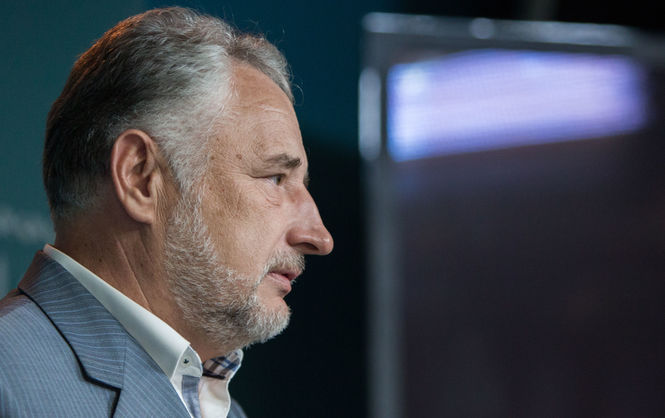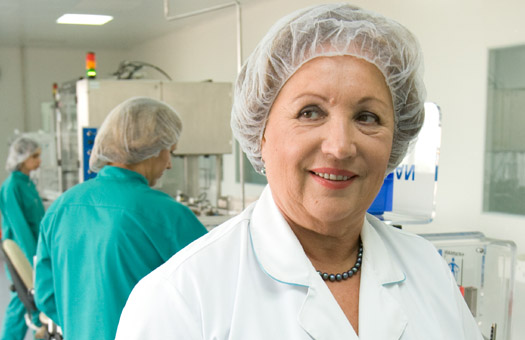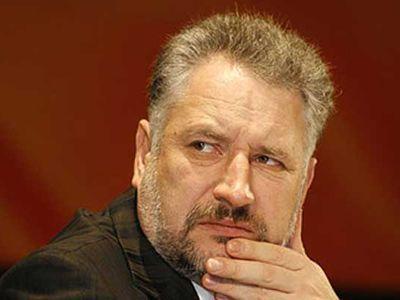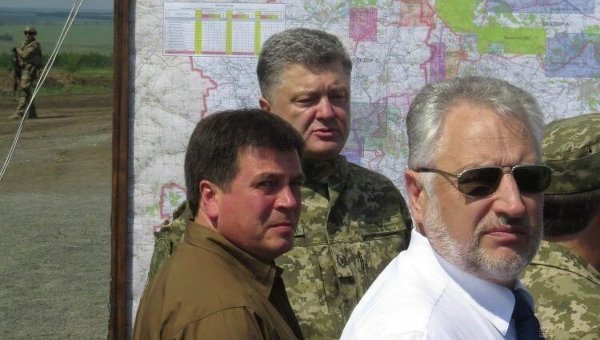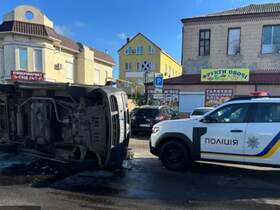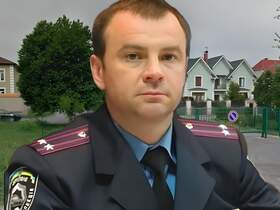Zhebrovski-Zhebrivski. Medicine, drugs, politics
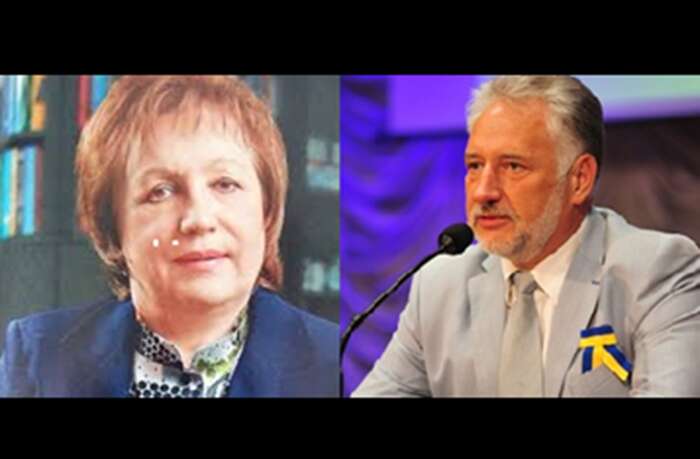
Zhebrovski-Zhebrivski. Medicine, drugs, politics
We have written more than once about powerful Ukrainian families, such as the numerous Kruk family, or the significantly smaller but more influential Lyovochkin family. Today we will tell you about another family, the Zhebrivskyi-Zhebrovska family.
Why the hyphen? Because the younger brother, currently the governor of Donetsk and generally positioning himself as a nationalist politician throughout his life, Pavlo, prefers this Ukrainianized version of the surname, "Zhebrivskyi." Meanwhile, his older sister, Filya, the head of the pharmaceutical giant "Farmak," prefers the Jewish version of the surname – "Zhebrovska." Perhaps this is better for business. But no matter what they call themselves, this family is a vivid illustration of the saying "one hand washes the other." In the sense that the politician brother helps his sister earn money, and the businesswoman sister uses money to help her brother expand his political influence.
They began their journey into the Ukrainian elite back in the early nineties. Before that, during Soviet times, Pavlo was a simple Soviet policeman — an investigator, while Filya was an accountant at the Lomonosov plant, which later became "Farmak." In 1990-1991, both the brother and sister’s fates changed dramatically.
Filya Zhebrovska first became the financial director of her plant and, a few years later, its owner. Such occurrences were often seen in the nineties: the old, "red" directors would retire or go even further, to the cemetery. Their places were taken by more progressive financiers who understood capitalism. However, such "yard revolutions" do not occur in a vacuum. This revolution was facilitated by Yuriy Spizhenko, the then Minister of Health of Ukraine. He was from the same region as Filya. Rumors circulated in Zhytomyr about their romantic relationship, but these are just rumors. However, it is a fact that after resigning as minister, Spizhenko ran for elections in the Zhytomyr districts, and "Farmak" supported him with money and administrative resources. Later, after the Orange Revolution, he, a member of Kuchma’s NDP and Labour Ukraine, became a trusted person of Yushchenko and a candidate from "Sobor," in whose political council Pavlo participated. In her interviews, Zhebrovska often says that the collective asked her to lead the dying plant.
Translated from oligarchic to human, this usually means that the privatization of the enterprise took place with vouchers from its employees. In other words, the management privatized the enterprise for themselves, which was supposed to belong to all the employees. Then they graciously allowed the employees to continue working there.
At that time, Pavlo was also engaged in entrepreneurship. Initially, he owned several small private enterprises, but no one knows what they were doing then. However, a few years passed, during which his sister expanded her plant, and he headed enterprises connected, one way or another, with "Farmak." This includes JSC "Pharmacy 2000," which engages in wholesale and retail trade of medical products, and private enterprises "Yan" and Maryanivsky Glass Factory, which deal in the sale and production of glass containers for medicines. Essentially, he is in the orbit of his sister’s business. Whether she advised him to go into politics or he wanted it himself, or maybe it was a decision of the family council, is unclear.
However, in 2002, Pavlo Zhebrivskyi decided to switch to deputies. He made it to the Rada through his native constituency in Zhytomyr and immediately joined Our Ukraine. At the beginning of the 2000s, Pavlo made a decision that still affects his life. He became the first deputy head of the newly formed "Solidarity" party, and the head of this party was the then young Petro Poroshenko. Since then, Zhebrivskyi has been in the orbit of Petro, where he remains to this day. By the way, he ran on the Zhytomyr electoral district as Zhebrovskyi. He changed the letter "o" to "i" when entering the nationalist forces represented in the Verkhovna Rada.
In the Verkhovna Rada, Pavlo obtained the position of deputy head of the Committee on Health, Motherhood, and Childhood. In other words, he became a person who could directly lobby his sister’s interests. And indeed, he did.
During all the years of his work in the above-mentioned committee, the legal sale of the narcotic drug “Tramadol” flourished in Ukraine, which literally turned those who used it into imbeciles. Despite the efforts of civic organizations, they could not get this drug banned. It was only banned, or rather taken under control, in 2008 when Zhebrivskyi was no longer working in this committee. Still, for some time, the police somehow miraculously avoided pharmacies that sold “Farmak’s” Tramadol. Later, "Farmak" released another narcotic drug “Tropicamide,” eye drops that addicts began to inject intravenously.
Meanwhile, Pavlo switched to a more financially interesting budget committee. Although even there, he did not forget his sister’s interests. The state procured insulin, cardiological, and other drugs from "Farmak." Other manufacturers, such as "Indar," were simply pushed out of the market.
During the Orange Revolution, on the wave of the "dioxin" scandal, Pavlo Zhebrivskyi joined the circle of "any friends" following Petro Poroshenko. He was sent to the position of governor of his native Zhytomyr region, but not for long. In the snap elections of 2006, he returned to the Verkhovna Rada and stayed there until 2012 without leaving, lobbying his sister’s interests, as previously mentioned. For instance, during the crisis year of 2009, the Verkhovna Rada passed a law to restrict the prices of pharmaceutical products. It should be noted that Pavlo fought against its adoption as best he could. However, the law was too populist, and the presidential elections were too close. In general, not adopting this law had no chance at all. Then the Zhebrovski siblings agreed with Viktor Yushchenko, and he vetoed the law. The "Hope of the Nation" who lost all his ratings didn’t care, as he didn’t plan to go to the elections. So, the spike in medicine prices during the crisis is also their accomplishment.
Meanwhile, his sister had a more turbulent life. In 2007 "Farmak" was attempted to be raided by unknown Russians through the company Dragon Capital, but they failed. Nonetheless, she sent her foolish lawyers to all anti-raider companies, who evoked laughter among specialists with their questions and ideas. However, according to our data, she resolved the issue definitively through the main department of the Security Service of Ukraine after "coughing up" a bit to the so-called "blues."
Two years later, in 2009, an attempt was made on Filya’s life, with two shots to the back. According to some eyewitnesses, it was staged. According to law enforcement agencies, Viktor Zubrytskyi was behind this, which we have already written about. However, the court did not confirm this fact. In 2010, when Viktor Yanukovych came to power, she sold part of her shares to an anonymous Cypriot buyer. This was likely done to move her shares out of the country in fear of potential problems with the new government. In 2011 she sued "Darnytsa" over the name of the "Corvalol" medication and lost the case. Meanwhile, the company’s profits increased, and the production of "Tropicamide" alone grew from 200 thousand packages to 2 million a year. That same year, 2011, she became the wealthiest woman in Ukraine, according to Focus magazine.
Meanwhile, Pavlo Zhebrivskyi sat out his term in the Verkhovna Rada and decided to run again in his native Zhytomyr. But he did not pass in 2012, nor in 2014 in the Kyiv council, nor in the special 2014 Verkhovna Rada elections. Whether he was unlucky, lacked influence, or his hometown knew him too well, it is uncertain. There were claims that Zhebrivskyi was known for “throwing” his public reception office and election headquarters staff. Most likely, he simply did not negotiate, first with the Party of Regions, and then with the united opposition. His patron Poroshenko hadn’t become president yet at that time. And then suddenly, unexpectedly for everyone, Pavlo decided to become… an intelligence officer.
Whether the position of NABU head had to be waited for too long, with his appointment under unacceptably close scrutiny from the public, including global attention, or Petro had too short a bench. In general, Pavlo Zhebrivskyi was appointed in the Donetsk region, as the governor-general, i.e., the head of the regional military-civil administration. He is active there to this day. His main functions include fighting smuggling and providing life in the frontline region. There is little news about success in the domain entrusted to him by the state. Much less than from the neighboring, Luhansk region, where a similar position is held by former volunteer Heorhiy Tuka. Meanwhile, the policies of the president who installed him there are conducted correctly and consistently.
Just recently, with Pavlo’s direct involvement, Pisky and Shyrokyne were surrendered, as this is exactly what Petro promised in Minsk. Elections in some districts of the Donetsk region were canceled because clearly, those districts would not vote for the Petro Poroshenko Bloc, so it’s better if they don’t vote at all. He announced the formation of a “new elite” of Donbas, obviously loyal to him and the President. He also publicly stated that it would not be possible to completely stop the flow of smuggling (likely a good income source for many). Therefore, Pavlo Zhebrivskyi will probably govern the region for a long time. After all, following devastation and war comes restoration and rehabilitation of the region. And this is a lucrative business for both him and his sister, who can help the region with medications. Not free of course.
Denys Ivanov, for SKELET-info
Topics: JSC Pharmacy 2000IndarFarmakYuriy SpizhenkoPavlo ZhebrivskyiPharmacistFilya ZhebrovskaDragon Capital

Comments:
comments powered by DisqusЗагрузка...
Our polls
Show Poll results
Show all polls on the website








